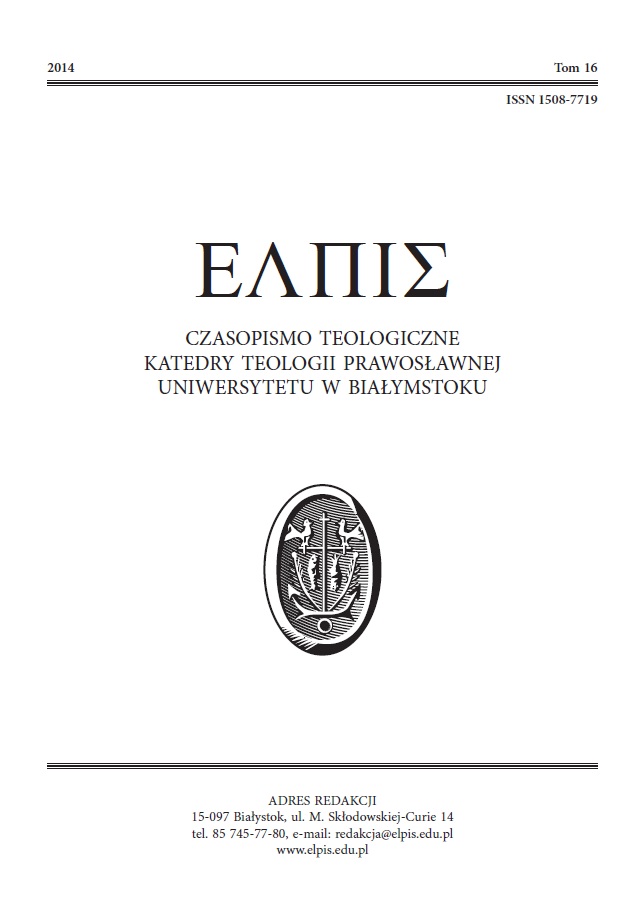Przeto, ktokolwiek by jadł chleb i pił z kielicha Pańskiego niegodnie (…) sąd własny je i pije (1 Kor 11,27-29)– czyli o właściwym przygotowaniu się..
Wherefore whosever shall eat this bread and drink this cup of the Lord unworthily (…) eats and drinks damnation to himself (1 Corinthians 11:27.29) ..
Author(s): Adam MagrukSubject(s): Christian Theology and Religion
Published by: Wydawnictwo Uniwersytetu w Białymstoku
Keywords: Eucharist; Baptism; Confession; fast; pray; spiritual and physical purity
Summary/Abstract: ‘The Sacrament of Sacraments’ or ‘The Mystery of Mysteries’, as it is called, the Holy Eucharist, is a recapitulation of Mystery of the Economy of the human’s salvation. Its importance, role and meaning unquestionably have a central place in the living organism, which is the Church. Everything moves around it and is based on it. Liturgical life and the life of every man finds its fullness, purpose and meaning in the Eucharist. The necessity of one’s appropriate preparation for the worthy reception of the Holy Eucharist has been accented for centuries by the whole Christian Tradition. The Apostle Paul was one of the first to raise this subject when he writes: Wherefore whosever shall eat this bread and drink this cup of the Lord unworthily, shall be guilty of the body and blood of the Lord. But let a man examine himself, and so let him eat of that bread, and drink of that cup. For who eats and drinks unworthily, eats and drinks damnation to himself, not discerning the Lord’s body. For this cause many are weak and sickly among you, and many sleep (1Corinthians 11:27-30). The following article examines the criteria that the Mother Church provides for believers in regards to proper and worthy preparation for this ‘personal’ meeting with Eternal and Living God based on the instructions of the Holy Fathers and teachers of the Church on this issue which has been analyzed in the following chapters
Journal: Elpis
- Issue Year: 2014
- Issue No: 16
- Page Range: 49-59
- Page Count: 11
- Language: Polish

